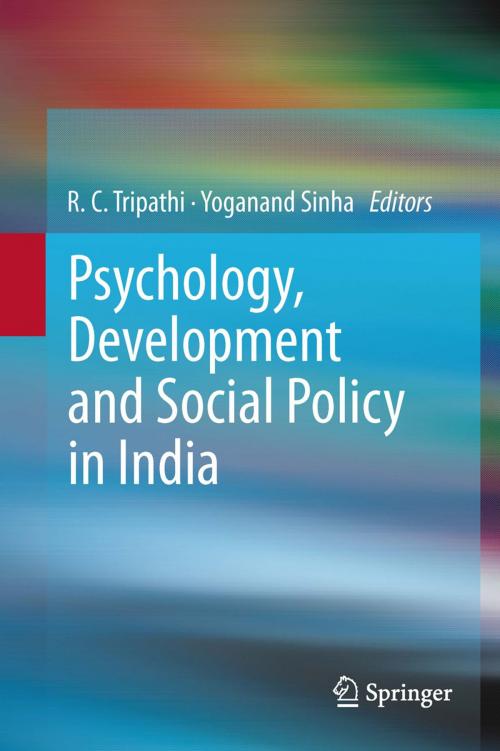Psychology, Development and Social Policy in India
Nonfiction, Health & Well Being, Psychology, History, Social & Cultural Studies, Political Science, Government, Social Policy| Author: | ISBN: | 9788132210030 | |
| Publisher: | Springer India | Publication: | August 5, 2013 |
| Imprint: | Springer | Language: | English |
| Author: | |
| ISBN: | 9788132210030 |
| Publisher: | Springer India |
| Publication: | August 5, 2013 |
| Imprint: | Springer |
| Language: | English |
This book examines how and where psychology can engage itself in the framing of social policies for national as well as human development in India. Although the role that psychological knowledge can play in informing social policy decisions has been discussed for a long time, psychologists by and large have had little role in framing policy decisions related to such important domains as education, health, social justice and social inclusion. Policy makers, not only in India, but more or less everywhere have focused on interventions at the macro level, which has led them to ignore the root causes of the problems lying at the micro level. However, with the more humanistic approaches now being followed by economists and other social scientists, the person in society is slowly taking centrestage. Micro-level variables like happiness, the wellbeing of individuals and the social relationships within which people define themselves are becoming important.
Therefore, this book discusses important psychological issues related to human development; particularly, health and education, social justice, social integration, environment and work organizations, besides focusing on some general issues relating to the logic of making social policies. It is a first-ever attempt in India to inform policy makers about how micro-variables can be a crucial factor to consider while framing social policies.
This book examines how and where psychology can engage itself in the framing of social policies for national as well as human development in India. Although the role that psychological knowledge can play in informing social policy decisions has been discussed for a long time, psychologists by and large have had little role in framing policy decisions related to such important domains as education, health, social justice and social inclusion. Policy makers, not only in India, but more or less everywhere have focused on interventions at the macro level, which has led them to ignore the root causes of the problems lying at the micro level. However, with the more humanistic approaches now being followed by economists and other social scientists, the person in society is slowly taking centrestage. Micro-level variables like happiness, the wellbeing of individuals and the social relationships within which people define themselves are becoming important.
Therefore, this book discusses important psychological issues related to human development; particularly, health and education, social justice, social integration, environment and work organizations, besides focusing on some general issues relating to the logic of making social policies. It is a first-ever attempt in India to inform policy makers about how micro-variables can be a crucial factor to consider while framing social policies.















